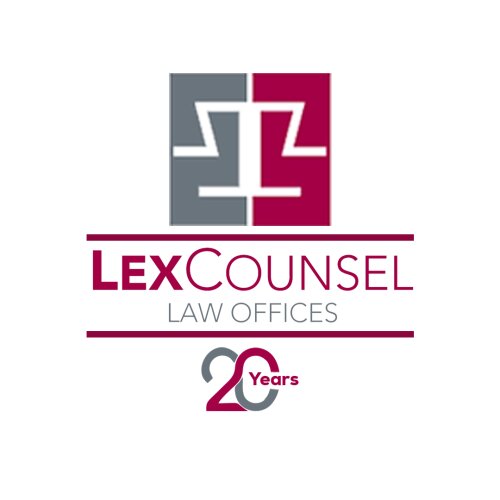Best Intellectual Property Lawyers in Bhubaneswar
Share your needs with us, get contacted by law firms.
Free. Takes 2 min.
List of the best lawyers in Bhubaneswar, India
India Intellectual Property Legal Questions answered by Lawyers
Browse our 1 legal question about Intellectual Property in India and read the lawyer answers, or ask your own questions for free.
- Can you write a contract for intellectual property
- I am making an App in India but I have no contract. I need to make one
-
Lawyer answer by Shenzhen Yizhou Intellectual Property Operation Co., Ltd.
Dear,You definitely should have a written contract before continuing development - it protects both you and your client by clearly defining ownership of the code, payment terms, delivery schedule, and confidentiality.Yizhou IP & Law can help you draft or review...
Read full answer
About Intellectual Property Law in Bhubaneswar, India
Intellectual Property Law in Bhubaneswar, like elsewhere in India, governs the protection and enforcement of rights related to inventions, trademarks, copyrights, and designs. Bhubaneswar, the capital city of Odisha, is a growing hub for technology, innovation, and startups, making Intellectual Property (IP) increasingly relevant. The legal framework in India aims to balance the rights of creators and the interests of the public, promoting creativity and innovation. The city houses several legal professionals specializing in IP, equipped to help individuals and businesses protect their intellectual capital effectively.
Why You May Need a Lawyer
There are numerous situations where engaging a lawyer skilled in Intellectual Property can be crucial:
- Filing for patents, trademarks, or copyrights to protect your creations or inventions.
- Handling disputes over IP infringement or misuse.
- Seeking advice on licensing agreements for your IP assets.
- Ensuring compliance with both local and international IP laws.
- Defending against accusations of IP infringement.
Lawyers can provide guidance on strategizing IP management, understanding the nuances of IP law, and implementing effective IP protection frameworks.
Local Laws Overview
Intellectual Property in Bhubaneswar is governed by the same national IP laws applicable throughout India. The key legislative acts include:
- The Patents Act, 1970, which provides for the grant, protection, and enforcement of patents.
- The Trade Marks Act, 1999, which governs the registration, protection, and enforcement of trademarks.
- The Copyright Act, 1957, which deals with the protection of literary, musical, and artistic works.
- The Designs Act, 2000, which relates to the protection of design rights.
The Protection of Plant Varieties and Farmers Rights Act, 2001, is specifically relevant to agricultural innovations. Enforcement mechanisms and dispute resolution can be sought through the Intellectual Property Appellate Board or civil courts, with Bhubaneswar being well-served by a range of IP practitioners and firms.
Frequently Asked Questions
What is Intellectual Property?
Intellectual Property (IP) refers to creations of the mind such as inventions, literary and artistic works, designs, symbols, names, and images used in commerce. It is a category of property that includes intangible creations.
Why is it important to protect Intellectual Property?
IP protection is crucial because it gives creators rights over their inventions or works, encouraging innovation and investment in new ideas. It prevents unauthorized use or reproduction, thus allowing creators to benefit financially.
What are the steps to register a trademark in Bhubaneswar?
Trademark registration involves choosing a unique mark, conducting a trademark search to avoid infringement, filing an application with the Controller General of Patents, Designs & Trademarks, and responding to any objections or opposing claims.
How long does it take to get a patent in India?
The patent application process can take between 2 to 5 years, depending on the complexity of the patent and legal proceedings involved.
Can I file for a patent online?
Yes, India allows electronic filing of patents through the official IP India services website, which streamlines the application process.
What can be protected under copyright law?
Copyright protects literary, dramatic, musical, and artistic works, cinematograph films, and sound recordings. It does not cover ideas, procedures, or methods.
How are intellectual property disputes resolved?
Disputes are generally resolved through negotiation, arbitration, or litigation. Courts or tribunals may hear the cases, depending on the nature of the dispute.
What is the validity period of a trademark?
In India, a registered trademark is initially valid for ten years and can be renewed indefinitely for subsequent ten-year periods.
Is there any protection for traditional knowledge or folklore under IP?
While specific IP categories may not cover traditional knowledge or folklore directly, frameworks like the Biological Diversity Act, 2002 provide some protection for these resources.
How does the Design Act protect a design?
The Design Act, 2000 protects the visual design of objects that are not purely utilitarian, such as the shape, configuration, pattern, or ornamentation applied to an article.
Additional Resources
Several resources can be helpful for those seeking legal advice in IP:
- The Office of the Controller General of Patents, Designs & Trademarks, which provides extensive guidelines and resources.
- The Ministry of Commerce and Industry offers detailed insights into IP policies and protection mechanisms.
- The Intellectual Property Appellate Board (IPAB) handles appeals on various IP matters.
- Local legal firms and practitioners specializing in IP law in Bhubaneswar.
Next Steps
If you need legal assistance in Intellectual Property, consider the following steps:
- Conduct thorough research on your specific IP needs.
- Consult with a licensed IP attorney familiar with local and national IP laws.
- Collect all necessary documents related to your IP, including registrations, licenses, or previous correspondences.
- Consider setting up a preliminary meeting with a lawyer to discuss your case and potential strategies.
Approaching the process with informed legal guidance can significantly impact the protection and enforcement of your intellectual property rights.
Lawzana helps you find the best lawyers and law firms in Bhubaneswar through a curated and pre-screened list of qualified legal professionals. Our platform offers rankings and detailed profiles of attorneys and law firms, allowing you to compare based on practice areas, including Intellectual Property, experience, and client feedback.
Each profile includes a description of the firm's areas of practice, client reviews, team members and partners, year of establishment, spoken languages, office locations, contact information, social media presence, and any published articles or resources. Most firms on our platform speak English and are experienced in both local and international legal matters.
Get a quote from top-rated law firms in Bhubaneswar, India — quickly, securely, and without unnecessary hassle.
Disclaimer:
The information provided on this page is for general informational purposes only and does not constitute legal advice. While we strive to ensure the accuracy and relevance of the content, legal information may change over time, and interpretations of the law can vary. You should always consult with a qualified legal professional for advice specific to your situation.
We disclaim all liability for actions taken or not taken based on the content of this page. If you believe any information is incorrect or outdated, please contact us, and we will review and update it where appropriate.
Browse intellectual property law firms by service in Bhubaneswar, India
Bhubaneswar, India Attorneys in related practice areas.









